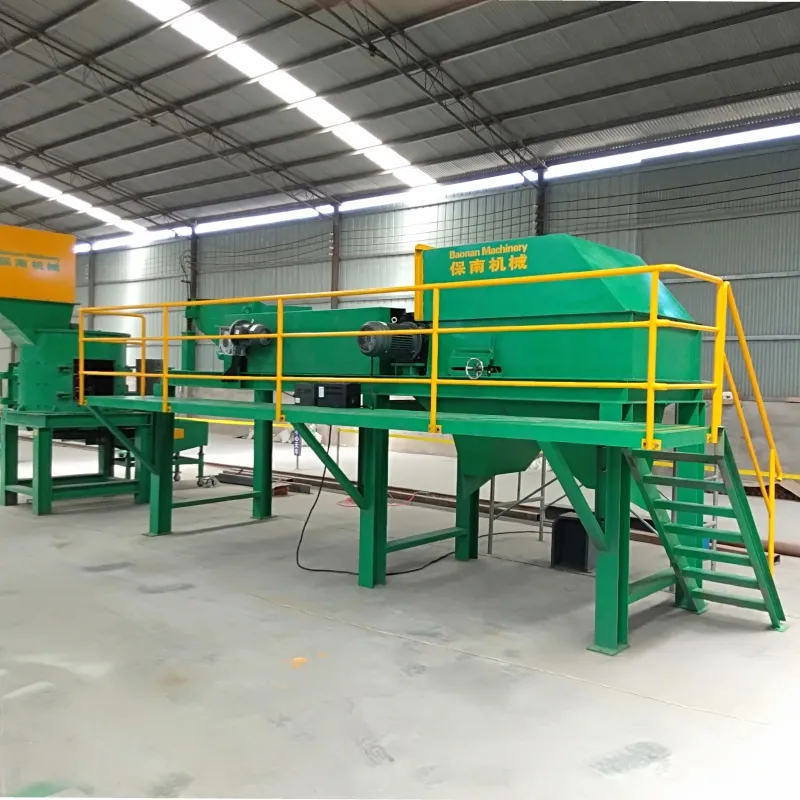

Th11 . 16, 2024 05:05 Back to list
How to Properly Dispose of Electronics
In today’s fast-paced technological landscape, electronic devices have become ubiquitous in our daily lives. From smartphones and laptops to kitchen appliances and smart home devices, we often find ourselves replacing old electronics with newer models. However, the question of how to properly dispose of these outdated devices has garnered increasing attention. Improper disposal can lead to environmental degradation and pose health risks due to the hazardous materials that many electronics contain. Therefore, understanding how to throw away electronics responsibly is crucial for both individuals and the community.
Understanding E-Waste
Electronic waste, or e-waste, refers to discarded electrical or electronic devices. It encompasses a wide range of products including computers, televisions, smartphones, batteries, and more. E-waste is one of the fastest-growing waste streams globally, and improper disposal can lead to toxic substances leaching into the environment. Common hazardous materials found in e-waste include lead, mercury, cadmium, and flame retardants. Therefore, it is vital to follow proper disposal practices.
Steps for Responsible Disposal
1. Assess the Condition of the Device Before deciding to throw away an old electronic device, assess its condition. If it’s still functional, consider donating it to a local charity, school, or community center. Many organizations welcome working electronics and can put them to good use.
2. Data Security Ensure that any personal or sensitive data is wiped from the device before disposal. This is particularly important for computers and smartphones. Simply deleting files or performing a factory reset may not be sufficient, as data can sometimes be recovered. Consider using data destruction software or physically destroying the hard drive for added security.

3. Check for Local Recycling Programs Many communities have designated e-waste recycling programs or events where you can drop off your unwanted electronics. These programs often ensure that the devices are recycled responsibly and that any hazardous materials are handled safely. Visit your local government’s website for information on e-waste collection events or permanent drop-off locations.
4. Retailer Take-Back Programs Many electronics retailers offer take-back programs for recycling old devices. Stores like Best Buy and Apple provide options for customers to return their old electronics when purchasing new ones. These programs typically facilitate responsible recycling and may even offer incentives, such as store credit.
5. Certified E-Waste Recyclers If local options are limited, consider using certified e-waste recycling companies. Look for organizations that hold certifications like R2 (Responsible Recycling) or e-Stewards, which ensure that e-waste is processed in an environmentally responsible manner.
6. Avoiding Landfills Under no circumstances should electronics be disposed of in regular trash bins. Not only is this often illegal, but it also contributes to landfill overflow and environmental contamination.
Conclusion
The disposal of electronics should not be treated lightly. With the myriad of options available for responsible disposal, there is little excuse for contributing to the growing e-waste problem. By donating, recycling, or utilizing take-back programs, you can play a crucial role in protecting our environment and ensuring that hazardous materials are managed properly. As consumers, we have the power to make informed decisions about our electronics and their lifecycle. By embracing responsible disposal practices, we contribute to a cleaner, healthier planet for future generations. Remember, when you update your tech gadgets, think twice about how you dispose of the old ones.
Latest news
Troubleshooting Common Eddy Separator Problems
NewsJul.04,2025
The Role of Metal Recycling Plants in Circular Economy
NewsJul.04,2025
The Impact of Recycling Line Pickers on Waste Management Costs
NewsJul.04,2025
Safety Features Every Metal Shredder Should Have
NewsJul.04,2025
How Industrial Shredders Improve Waste Management Systems
NewsJul.04,2025
How Cable Granulators Contribute to Sustainable Recycling
NewsJul.04,2025